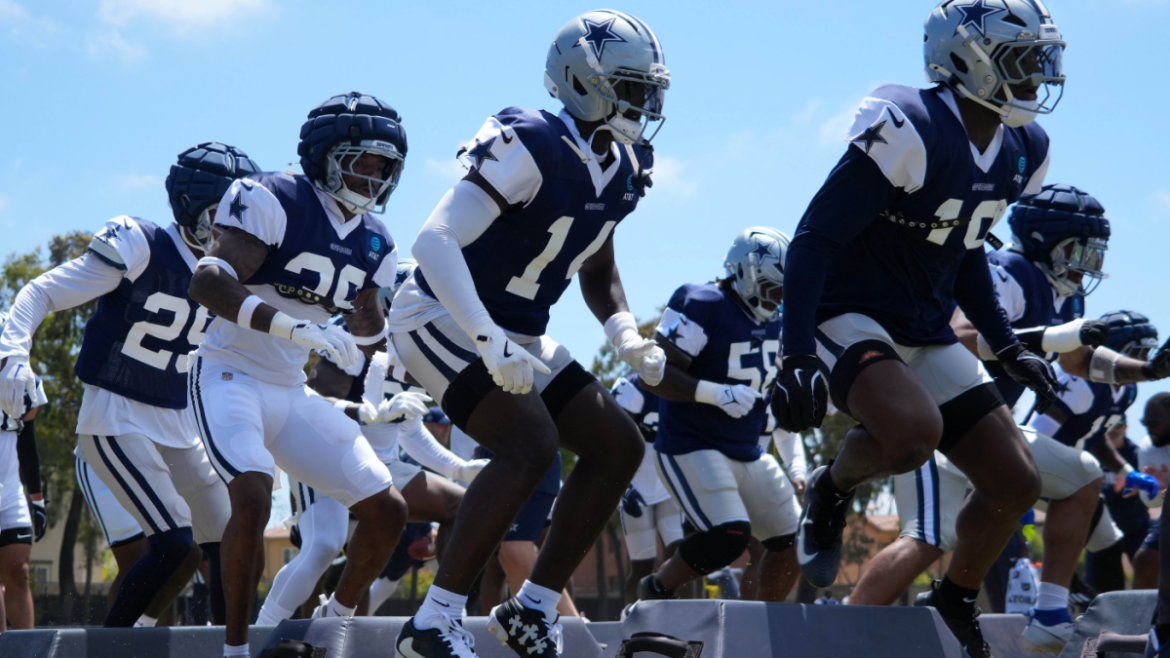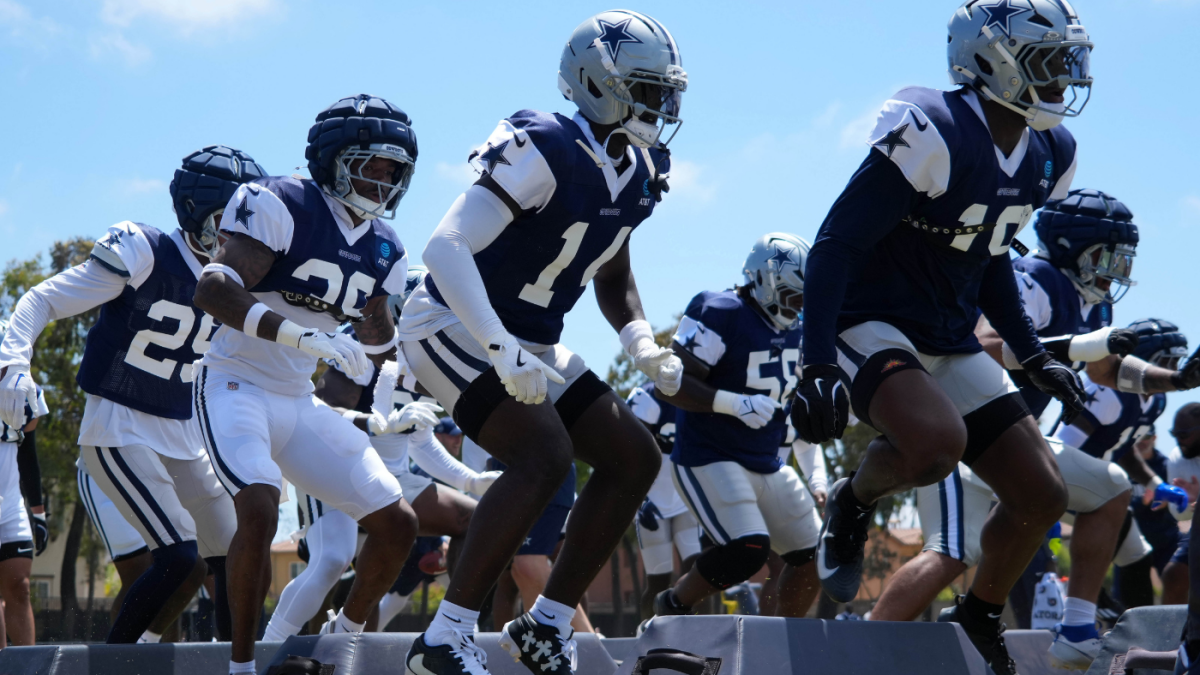The Schottenheimer Effect: Discipline and Dynamics in the Cowboys’ Training Camp
A Crucible of Competition and Conflict
Training camp is a microcosm of the NFL season, a high-stakes environment where raw talent is honed into a cohesive unit. For the Dallas Cowboys, this year’s camp in Oxnard, California, has been anything but serene. The early days have been marked by intense competition, heated exchanges, and even physical altercations. These incidents have not only tested the players’ mettle but also the leadership of new offensive coordinator Brian Schottenheimer. His response to the escalating tensions has been both decisive and controversial, sparking debates about discipline, respect, and the future of the Cowboys.
The Flashpoint: Fights Erupt in Oxnard
The Cowboys’ training camp has seen multiple fights, particularly during competitive red-zone drills. These altercations were not mere shoves or pushes but full-blown fights that required intervention from coaches and teammates. The frequency and intensity of these incidents crossed a line, prompting Schottenheimer to take drastic measures. The fights were not isolated incidents but symptoms of a deeper issue within the team. The pressure to perform, the competition for starting positions, and the sheer intensity of the practices all contributed to the heightened emotions.
Schottenheimer’s Old-School Approach
In response to the escalating aggression, Schottenheimer halted practice and ordered the entire team, including coaches, to run sprints. This disciplinary action is reminiscent of older, more traditional coaching styles, a stark contrast to the often player-friendly environments cultivated in modern football. Schottenheimer also ejected a player from practice for throwing a punch. His actions sent a clear message: discipline and accountability are non-negotiable.
Player Reactions: A Mixed Bag
The players’ reactions to Schottenheimer’s disciplinary actions have been mixed. Some have praised his firm hand, recognizing the need for maintaining order and preventing the escalation of conflicts. Others, however, have expressed resentment, feeling that the punishments were too harsh or unfair. The key players’ support for Schottenheimer’s actions suggests that they understand the importance of discipline in achieving team goals. However, it is crucial for Schottenheimer to balance his commitment to discipline with empathy and understanding, ensuring that players feel valued and respected.
The Broader Context: More Than Just Fights
The fights during training camp are symptoms of deeper dynamics within the team. Training camp is designed to push players to their limits, both physically and mentally, in preparation for the grueling demands of the regular season. The Cowboys are under immense pressure to perform well this season, given their history and fanbase expectations. This pressure can intensify the competitive atmosphere and lead to friction among players. Moreover, the team’s recent struggles have added to the sense of urgency and desperation, further exacerbating the tensions.
The Potential Impact: Forging Unity or Fostering Resentment?
The long-term impact of Schottenheimer’s actions remains to be seen. On one hand, his decisive intervention could foster a stronger sense of unity and discipline within the team. By holding everyone accountable, he is emphasizing that individual actions have consequences and that team success depends on collective responsibility. This could lead to improved communication, mutual respect, and a greater commitment to shared goals.
On the other hand, there is a risk that Schottenheimer’s approach could breed resentment among some players. Public punishments can be demoralizing, especially for veterans who are accustomed to more autonomy. If players feel that they are being treated unfairly or that their concerns are not being heard, it could lead to disengagement and a decline in performance. It is crucial for Schottenheimer to balance his commitment to discipline with empathy and understanding, ensuring that players feel valued and respected.
The Road Ahead: Discipline and Dialogue
As the training camp progresses, it will be essential for Schottenheimer to continue to address the underlying causes of the conflicts. This could involve facilitating open communication between players, providing opportunities for conflict resolution, and reinforcing the importance of sportsmanship and respect. Furthermore, he needs to clearly articulate his expectations for player behavior and consistently enforce those expectations, demonstrating that discipline is not arbitrary but rather a fundamental aspect of the team’s culture.
Beyond Punishment: Building a Culture of Respect
Ultimately, the success of the Cowboys this season will depend not only on their physical talent but also on their ability to work together effectively as a team. While Schottenheimer’s initial response to the fights was necessary to regain control, it is only the first step in building a sustainable culture of discipline and respect. By fostering open communication, promoting mutual understanding, and reinforcing the importance of collective responsibility, Schottenheimer can help the Cowboys channel their competitive energy in a positive direction and achieve their full potential.
Conclusion: A Test of Leadership
The Schottenheimer Effect is more than just a series of disciplinary actions; it is a test of leadership. Schottenheimer’s ability to balance discipline with empathy, to foster unity without stifling individuality, will determine the success of the Cowboys this season. The road ahead is fraught with challenges, but with the right approach, Schottenheimer can transform the Cowboys into a cohesive, disciplined, and respected team. The fights in Oxnard may have been a flashpoint, but they also present an opportunity for growth and transformation. The question is, will Schottenheimer seize it?





